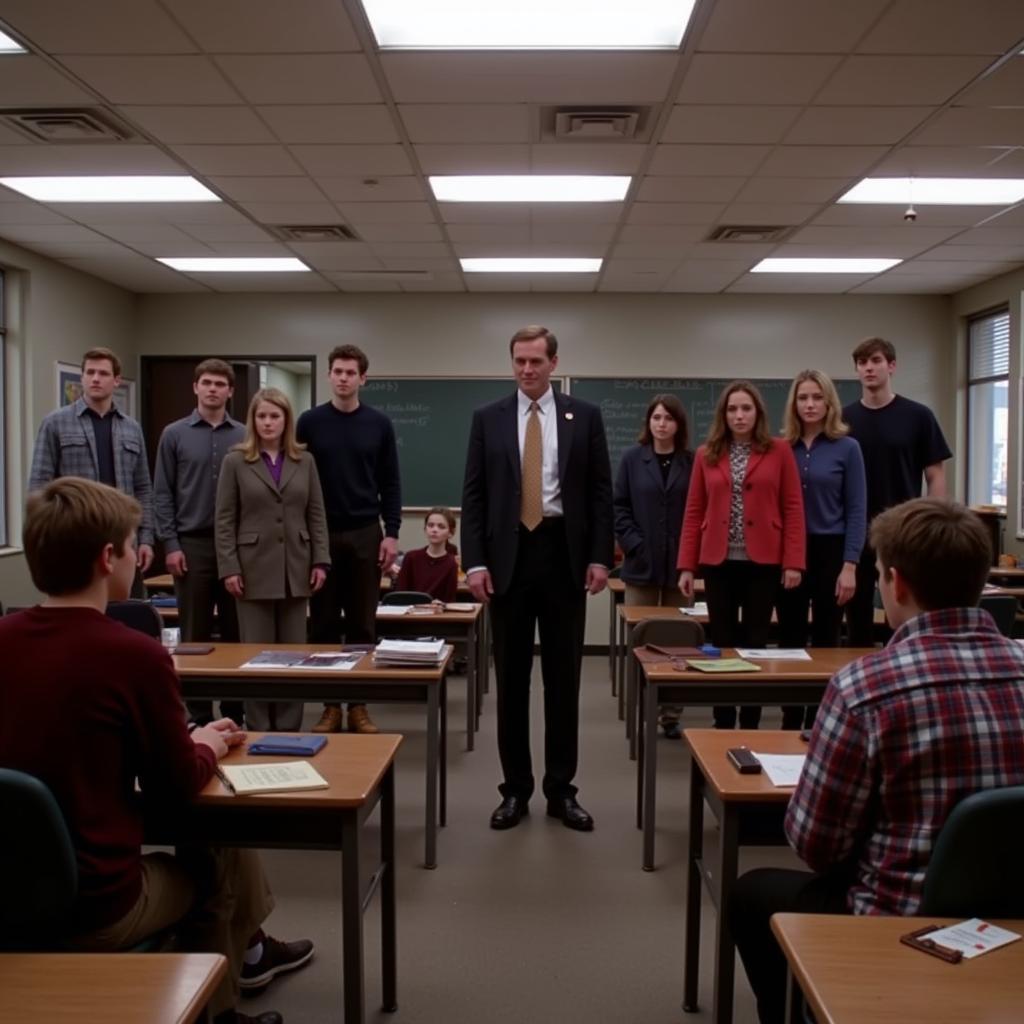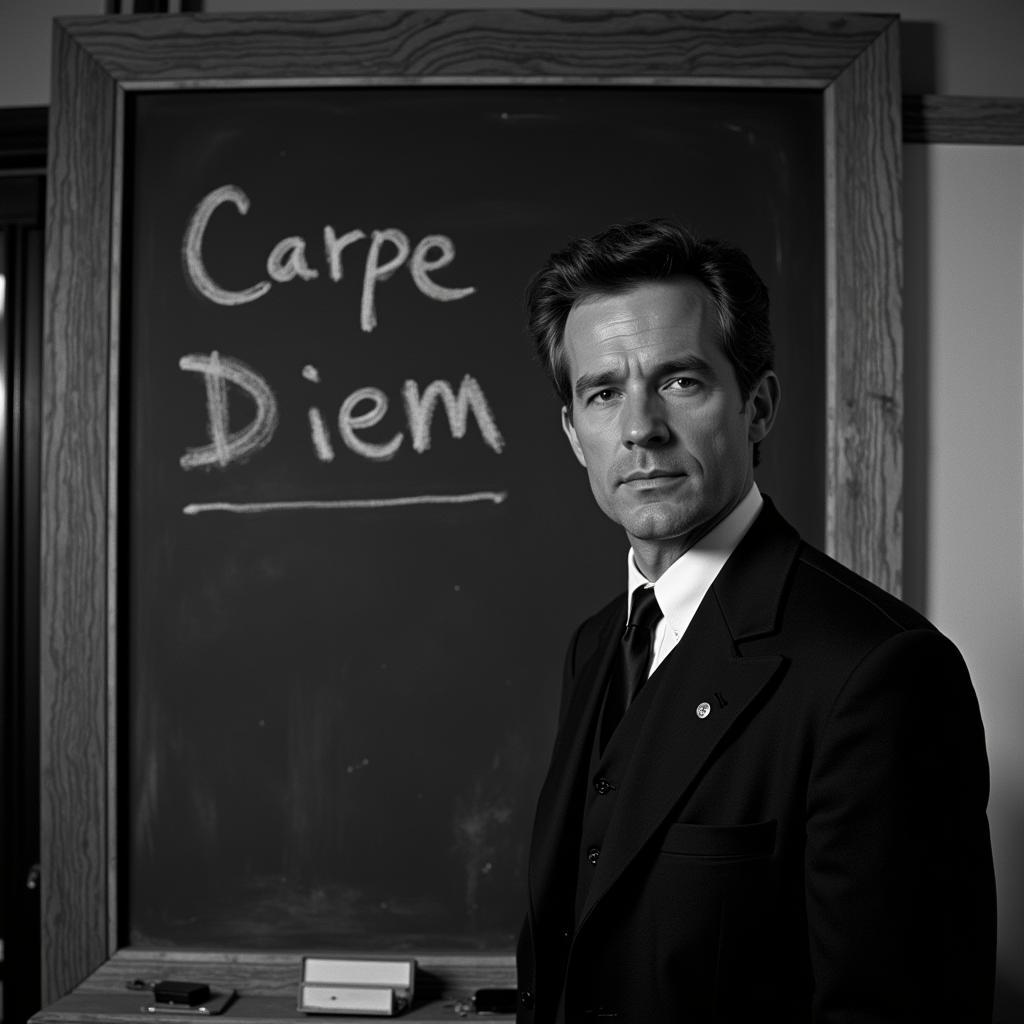The End Of Dead Poets Society is more than just a conclusion; it’s a poignant reflection on conformity, rebellion, and the courage to seize one’s own narrative. While the film, set in a conservative Vermont prep school in 1959, might seem worlds away, its themes of individuality and the pursuit of passion resonate deeply in today’s world.
A Final Act of Defiance: Unpacking the Meaning Behind the Desks
 Students standing on desks in Dead Poets Society
Students standing on desks in Dead Poets Society
The film’s iconic final scene, with students standing atop their desks reciting “O Captain, my Captain,” is a powerful testament to the impact of John Keating, the unconventional English teacher who dared them to “suck the marrow out of life.” This act of defiance, while seemingly simple, carries immense weight. It symbolizes the students’ refusal to succumb to the oppressive atmosphere of Welton Academy, choosing instead to honor Keating’s lessons of free thought and self-expression.
This scene speaks volumes about the importance of mentors who challenge the status quo and inspire young minds to think differently. Keating’s unorthodox teaching methods, though criticized by the rigid school administration, ignited a spark in his students, encouraging them to question societal norms and embrace their own passions.
Carpe Diem: A Call to Action That Transcends Generations
 Robin Williams as John Keating in Dead Poets Society
Robin Williams as John Keating in Dead Poets Society
Keating’s mantra, “Carpe Diem,” Latin for “seize the day,” echoes throughout the film, urging his students to embrace the present and live life to the fullest. This message isn’t confined to the halls of Welton; it’s a universal call to action, encouraging individuals from all walks of life to pursue their dreams without reservation.
In a world often dictated by expectations and societal pressures, “Carpe Diem” serves as a powerful reminder to forge our own paths and live authentically. The end of Dead Poets Society emphasizes that the pursuit of one’s passion, though challenging, is a worthwhile endeavor.
The Legacy of Dead Poets Society: Finding Inspiration in the Face of Adversity
Despite its seemingly simple premise, Dead Poets Society tackles complex themes of conformity, rebellion, and the search for identity. Though the ending is tinged with tragedy, it offers a glimmer of hope. The students’ final act of defiance demonstrates that Keating’s spirit lives on, inspiring them to challenge convention and embrace the power of their own voices.
The film serves as a timeless reminder that the pursuit of passion and individuality is a journey worth undertaking, even in the face of adversity. It encourages us to find our own “Dead Poets Society” – a space where we can explore our thoughts and dreams freely, surrounded by individuals who challenge and inspire us.
Finding Your Own Voice: How Dead Poets Society Continues to Inspire
The legacy of Dead Poets Society extends far beyond the screen. It compels us to ask ourselves: What would it look like to “Carpe Diem” in our own lives? How can we embrace the spirit of the Dead Poets Society and inspire others to do the same?
These questions are as relevant today as they were in 1959. In a world grappling with complex issues, Dead Poets Society reminds us of the power of art, literature, and the human spirit to ignite change and inspire hope.
Need support in fostering peace and understanding? Reach out to us at:
Phone: 02043854663
Email: [email protected]
Address: Khu 34, Bac Giang, 260000, Vietnam.
Our dedicated team is available 24/7 to assist you.